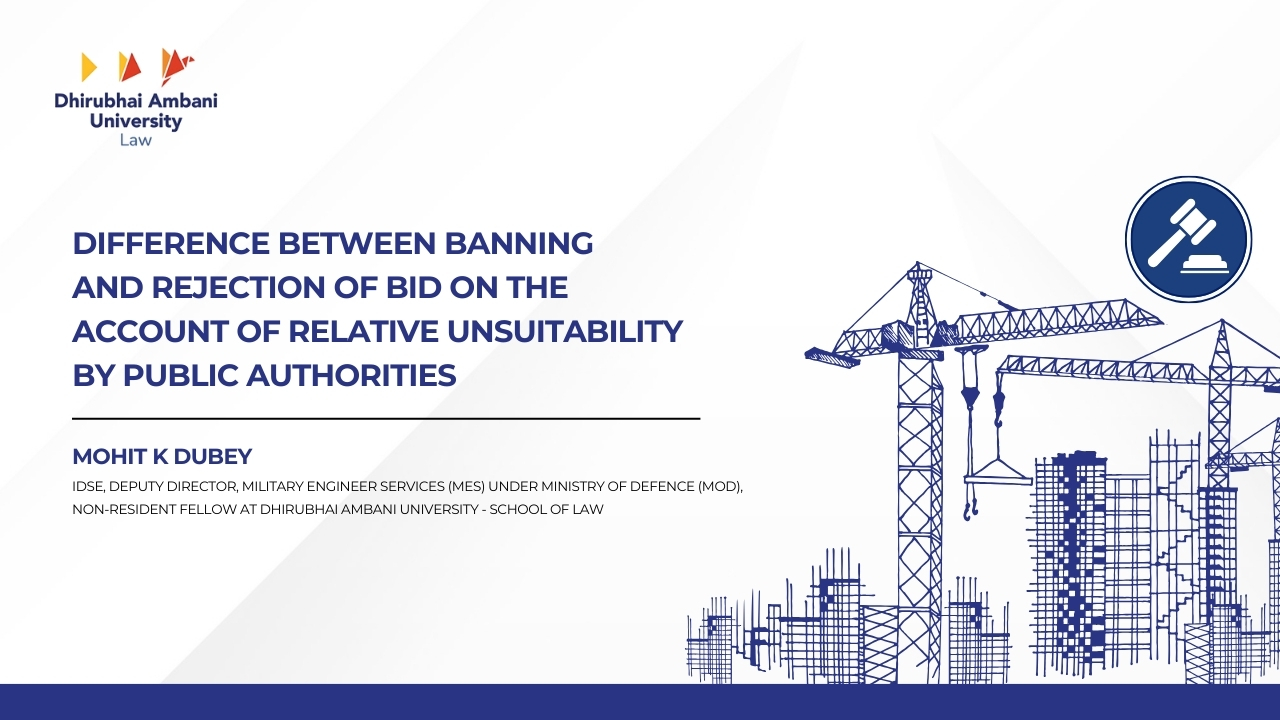
Mohit K Dubey, IDSE, Deputy Director, Military Engineer Services (MES) under Ministry of Defence (MoD), Non-Resident Fellow at Dhirubhai Ambani University – School of Law
INTRODUCTION
DIFFERENCE
Discrimination of a contractor by public department is a violation of Article 14 of constitution where every contractor enjoys equality before law while bidding for a project with public agency. However, rejection of the bid of the contractor on the account of not qualifying the pre-qualification criteria necessary for bid submission of the project doesn’t fall under the category of banning/blacklisting. There could be variety of such qualification criteria such as insufficient experience of similar projects; insufficient turnover; insufficient tools and plants available or the contractor is blacklisted/banned in the same department or other public department. It has been held by Hon’ble Supreme Court that rejection of bid on account of non-qualifying the bid submission criteria is not the violation of Art 14 of the constitution. Supreme Court in Tata Cellular v UoI, (1994) 6 SCC 651 cautioned High Courts that they should avoid interpreting contract conditions and their intervention must be limited to reviewing the process undertaken behind administrative decision and they should not impose their own decision in this regard. Supreme Court further emphasized in Afcons Infrastructure Limited v Nagpur Metro Rail Corporation Limited and another, (2016) 16 SCC 818 that decision making process in accepting or rejecting bid should not be interfered with. Only when decision making process suffers from mala fides or intends to favour someone then interference is permissible. High Court of state of Andhra Pradesh in the case of Sri Rama Engineering Contractors v Deptt of Space, Govt of India, AIR 1981 AP 165 held that where the government has rejected the contractor on the ground of his relative unsuitability, it involved no forfeiture of his pre-existing rights or interest nor did it defeat his legitimate expectation nor did it inflict any civil consequences. In such as case the contractor is entitled only to be treated fairly and honestly and not according to principles of natural justice. These directions given by Supreme Court and High Courts are required to protect the public infrastructure projects from getting delayed even before they could start on ground.
CONCLUSION
The topic of banning and blacklisting of contractors needs further deliberation. However, this blog attempts to restrict the discussion only to the “Distinction between banning/blacklisting and rejection of bid on account of relative unsuitability”. It can be concluded that the courts have struck a balance between judicial scrutiny of the decision-making process vis-à-vis responsibility of public undertakings to execute public infrastructure on time. Courts have emphasised that the contractor is only entitled to fair treatment, and principles of natural justice shall not dictate tender scrutiny committee while rejecting the bid of tenderer who falls short of eligibility criteria.
